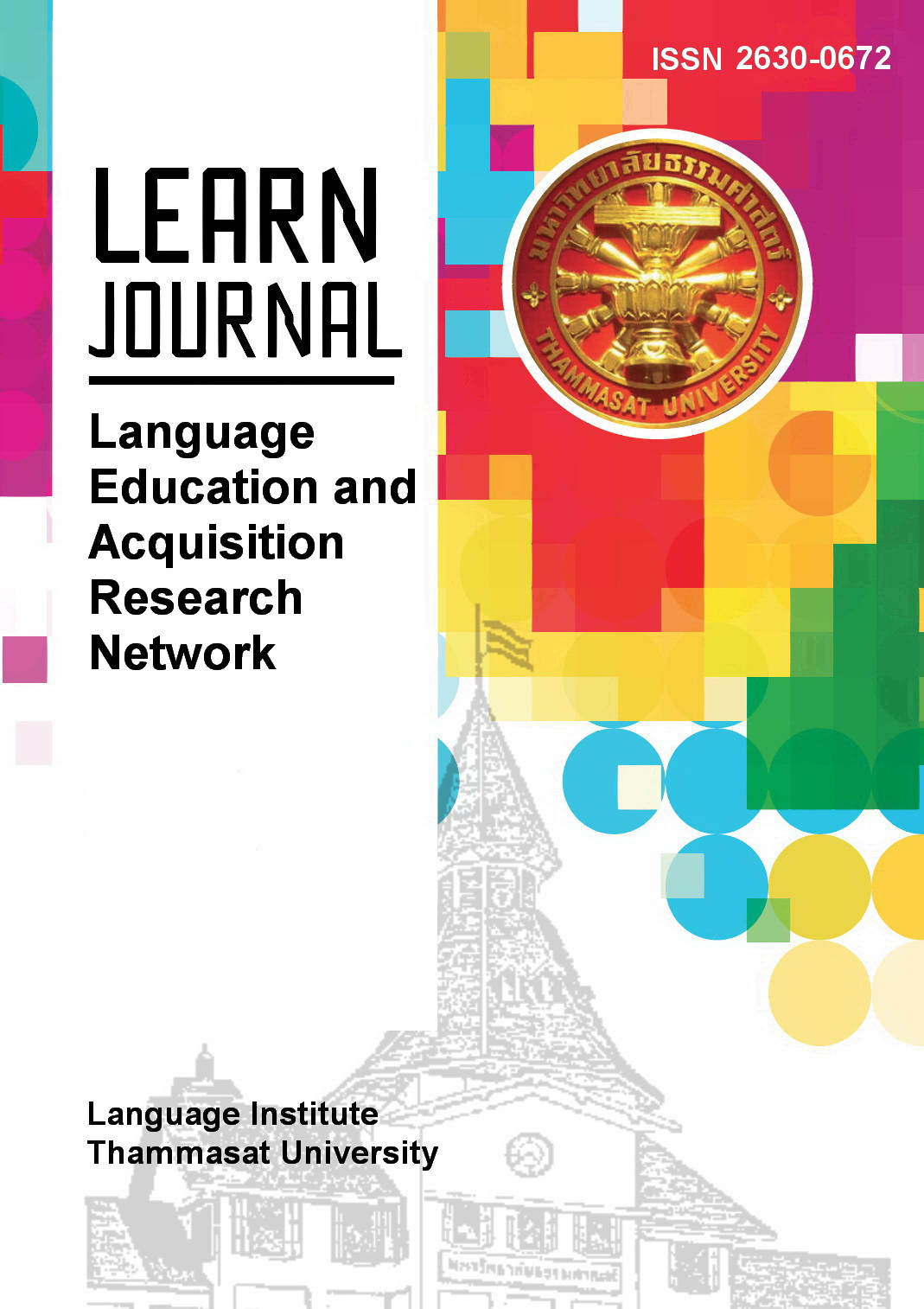L2 Production of English Word Stress by L1 Thai Learners
Main Article Content
Abstract
This research was aimed at investigating L1 Thai learners’ English word stress production in two aspects of English words – 1) English words with different suffixes: suffixes affecting stress shift, i.e. ‘-ic’ (e.g. ‘fantástic’), ‘-ity’ (e.g. ‘idéntity’) and ‘-tion / -sion’ (e.g. ‘eléction’) and suffixes demanding stress, i.e. ‘-oon’ (e.g. ‘typhóon’), ‘-eer’ (e.g. mutinéer) and ‘-ee’ (e.g. foresée) and 2) compound words: compound nouns (e.g. bédroom) and compound verbs (e.g. look fór). In total, 10 intermediate learners and 10 advanced learners participated in this study. The participants completed two production tasks: “Reading English Word Stress in Isolation” and “Reading English Word Stress in Sentences”. The results showed that the advanced learners had better English word stress production than the intermediate learners in both tasks. It was assumed that the errors made were caused by interlingual errors as the word stress assignment rules of the two languages were different. This led to negative transfer which interferes with L1 Thai learners’ acquisition of English word stress. The results contribute to second language acquisition with respect to English word stress of L1 Thai learners and also provide pedagogical implications for English pronunciation.


